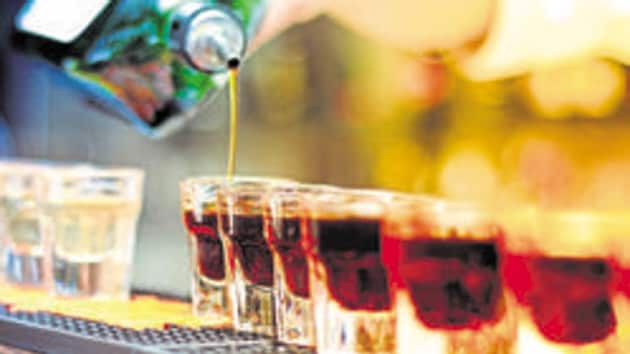After Punjab, Himachal amends Excise Act to allow hotels, bars to serve liquor on highways
Earlier on April 5, the state government had re-notified its 16 State highways to major district roads to benefit liquor vends located on or within 500 metres.
The Himachal Pradesh government has brought an ordinance to modify the state’s excise act to enable hotels, restaurants and bars near highways to serve alcohol, days after the neighbouring state of Punjab took the amendment route to bypass the Supreme Court’s 2016 order to shut down all liquor shops along state and national highways.

The Congress government in the hill state added a new section, 23A, in the Excise Act, 2011, to change the definition of sale of liquor to service in case of hotels, restaurant, clubs and similar notified places even if they fall within the 220-metre distance from the edge of the national highway.
The ordinance to amend the excise act was signed by governor Acharya Devvrat on June 30 and the department of excise and taxation issued a notification on the issue the same day. The amendment came into force on July 1.
There was, however, no relaxation in the ban on the sale of liquor by stores along highways.
“Sale of liquor shall be permitted only through licensed liquor vends which shall not be located within distance of 220 or 500 metres from the outer edge of national and state highways…” the amendment read.
“Notwithstanding anything contained in any judgment or order of a court, every hotel, club, restaurant or any notified place having a license shall be entitled to engage in the service and supply of liquor within its premises … irrespective of whether such places are located on or near any state or national highway,” it added.
Excise and taxation commissioner Pushpendra Rajput, who is also the principal secretary to the governor said, “ The act has been notified.”
On being asked about the reason behind the amendment, he said, “I am in a meeting. I have to see the file before commenting on reason.”
However, another excise officer said there was a fear of revenue loss besides pressure from hotels and bar owners who cited loss of revenue and jobs. He did not wish to be named.
Earlier, the Himachal government filed a plea in the top court seeking amendment in its order keeping the topographical situation of the state in mind. The top court modified its directions in March this year and relaxed the distance norm to 220 metres from 500 metres for areas with a population less than 20,000 in Himachal, Sikkim and Meghalaya.
And in April, the state government re-notified its 16 state highways to major district roads so that liquor vends located on or within 500-metre distance could continue selling alcohol.
States such as Rajasthan, Maharashtra, Himachal Pradesh, Uttarakhand, West Bengal and the Union Territory of Chandigarh also denotified hundreds of kilometres of highways as local roads in order to bypass the Supreme Court ruling.
The Supreme Court said on Tuesday there was nothing wrong with denotifying local highways within the city, which many states have done in an apparent move to circumvent its earlier order that banned liquor sale within 500 meters of all highways.
“All roads notified within the city are those where there is no fast moving traffic. We could have appreciated if the road was in the nature of a highway where there is a fast-moving traffic,” a bench headed by Chief Justice JS Khehar said while hearing a petition challenging Chandigarh administration’s notification to re-classify its local highways.
The state government feared the loss of revenue from liquor sale after the December 15, 2016, verdict of the Supreme Court. For last fiscal year, the excise revenue was expected at Rs 1,266 crore and projected to increase to Rs 1,500 crore during the current fiscal.
Other states are also trying to find ways around the December ruling of the Supreme Court. Goa chief minister Manohar Parrikar has hinted that his government might amend its excise act. The Chhattisgarh government has constituted a panel to study the excise policy of other states where liquor is banned or is being sold under supervision.
Get Current Updates on India News, Lok Sabha Election 2024 live, Infosys Q4 Results Live, Elections 2024, Election 2024 Date along with Latest News and Top Headlines from India and around the world.




